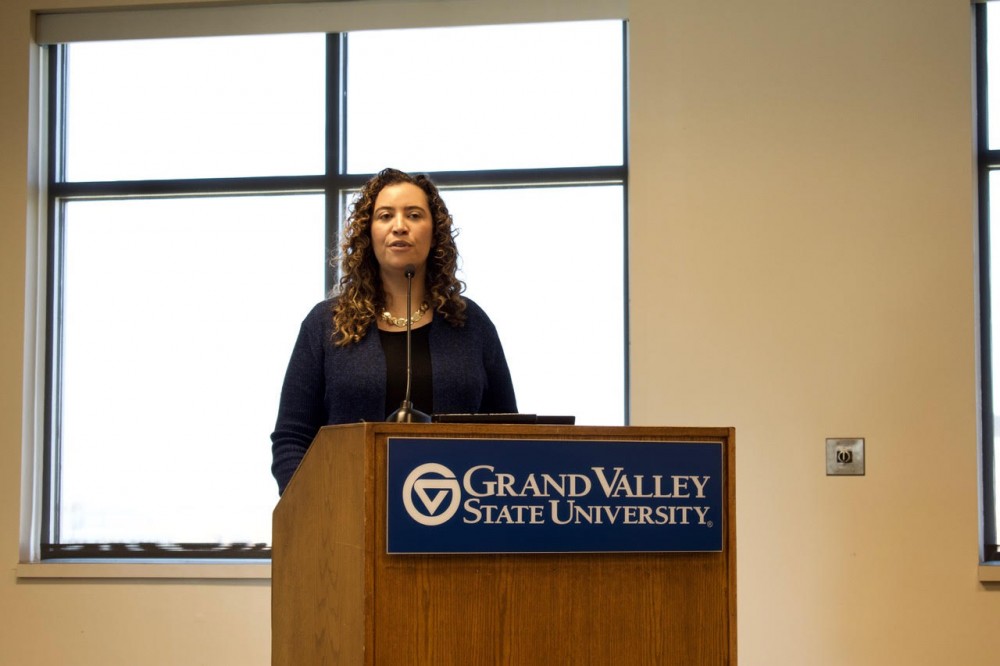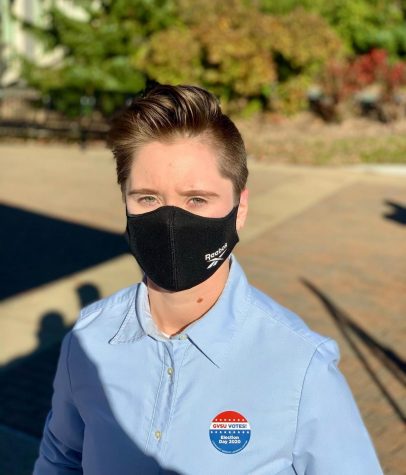GV hosts technology, AI author for Big Data Initiative

GVL
Apr 1, 2019
On Tuesday, March 26, Grand Valley State University hosted journalism professor and author Meredith Broussard, an assistant professor at the Arthur L. Carter Journalism Institute at New York University. Broussard was invited to present as a part of the Big Data Initiative, an organization that sponsors training workshops for faculty, brings in speakers from around the country and encourages the development of courses and programs that use data analytics.
The initiative was established in 2012 to incorporate data analytics into the university’s curriculum and into faculty scholarship, and has created programs such as digital studies and data science.
During her presentation, Brossard discussed her book, “Artificial Unintelligence,” which highlights the misconceptions and prospective dangers of emerging technology like artificial intelligence, self-driving cars and facial recognition software. Broussard’s research focuses on artificial intelligence in investigative reporting, with a particular interest in data analysis for social good.
Assistant Vice President for Academic Affairs and leader of GVSU’s Big Data Initiative Ed Aboufadel explained that a faculty book club led to staff members inviting Broussard to come speak on campus.
“This is the second year in a row that the Advisory Council has sponsored a book club of faculty and staff to read a book related to big data, and over 25 people read ‘Artificial Unintelligence,’” Aboufadel said. “The book makes the case that our collective enthusiasm for applying computer technology to every aspect of life, what she calls ‘techno-chauvinism,’ has resulted in many poorly designed systems. Professor Jeffrey Kelly Lowenstein knows her and contacted her to see if she would visit GVSU after we finished reading her book and she quickly agreed.”
Broussard’s presentation also highlighted the racial injustice often seen within both technology itself as well as in technology companies that produce AI software. The presentation called attention to the issues from facial recognition software to automated soap dispensers that were faultily programmed to recognize only certain skin tones.
Following the presentation, Broussard connected with faculty and staff through a lunch session and paid a visit to an advanced reporting techniques class to meet with students.
Broussard said that her presentation was meant to make people think more critically about how we use technology and the different reasons why we often consider technology to be the cure-all solution to our world’s issues and why this could be potentially dangerous.
“I’m a big fan of technology, but I really advocate for using the right tool for the task,” Broussard said. “I spoke about how technology is often seen as the only solution, but it’s not always, and I would argue that there’s nothing inherently better about using technology to solve every problem we have. I feel we need a more nuanced approach.”
Broussard said she hopes readers of her book will gain a sense of empowerment around technology and believes in the value of helping students become more educated about technology use in their own lives. She also hopes to dissipate the distaste toward the math that is often associated with technology,and hopes students can grow their interest in technology, even if they feel their math skills aren’t strong.
Broussard said there is value in educating students about technology, especially about the dangers technology poses to society if used improperly. Broussard explained that she wants to continue having inter-generational discussions about technology, as connecting and educating people of different ages about technology can be extremely beneficial.
“College students are the next generation, and these are some of the important issues that society as a whole is wrestling with,” Broussard said. “I think it’s really important to have an inter-generational conversation about these topics because you get better collective decision making when considering the concerns of a wider group.”






















